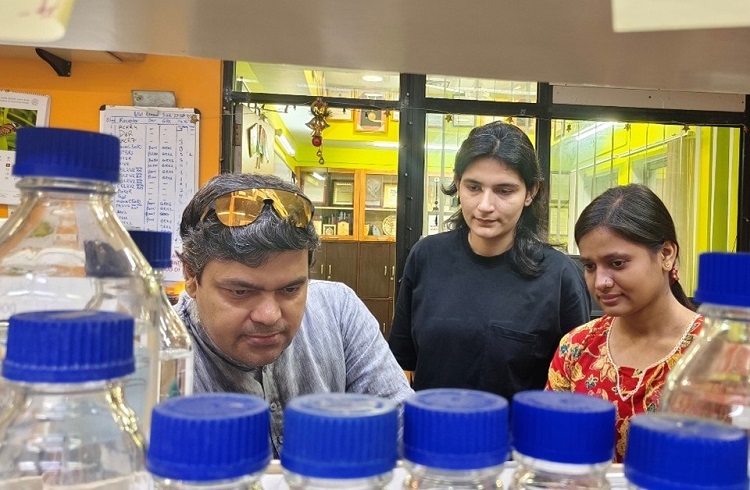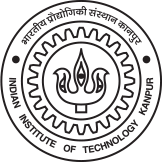
IIT Kanpur Researchers Develop Novel Sensor to Study How Medicines Activate Vital Receptors
Kanpur , 11 September 2025
Source: Information and Media Outreach Cell, IIT Kanpur
Researchers at the Indian Institute of Technology Kanpur (IIT Kanpur) have developed a novel antibody-based biosensor that can monitor the activation of G protein-coupled receptors (GPCRs) in live cells. GPCRs are the largest family of receptor proteins in human cells and are targeted by more than one-third of all clinically prescribed medicines.
Led by Prof. Arun K. Shukla, the research team has been investigating GPCR biology for over a decade. GPCRs, because of their central role, are considered some of the most important gateways for developing new drugs and therapies. The new biosensor represents a significant milestone in overcoming the technical challenges of monitoring receptor activation inside living cells.
GPCRs typically remain inactive until they receive a signal, such as light, hormones, or small molecules, that activates them to transmit signals across the cell membrane. This process, known as signal transduction, is central to human physiology. However, studying these activations in real-time within live cells has been difficult.
To address this, the IIT Kanpur team developed an engineered antibody (nanobody) sensor that binds to GPCRs only upon activation and in association with arrestins. When the receptors are activated by their ligands, the nanobody comes into close proximity, triggering an enzymatic reaction that produces a measurable luminescence signal.
“The beauty of this biosensor is that it does not require any modification of GPCRs, and still, it can report their activation by ligands. This opens up possibilities for imaging these receptors in disease contexts,” said Prof. Arun K. Shukla, Professor, IIT Kanpur who led the study.
“The versatility of this sensor allows us to monitor the localization of GPCRs in different sub-cellular compartments, which in turn tells us about their downstream signaling mechanisms. This is an important development in understanding GPCR signaling for novel drug discovery”, says Annu Dalal, a Ph.D. student at IIT Kanpur and one of the lead authors in this study.
The project was carried out in collaboration with Prof. Josef Lazar’s laboratory at the Institute of Organic Chemistry and Biochemistry, Czech Academy of Sciences, Prague. It was supported by an Indo-Czech joint research initiative funded by the Department of Science and Technology (DST), Government of India. The findings are published in the peer-reviewed journal Proceedings of the National Academy of Sciences (PNAS), USA.
Other members of the IIT Kanpur research team include Parishmita Sarma, Manis Yadav, Sudha Mishra, Nashrah Zaidi, Divyanshu Tiwari, and Nabarun Roy.
This breakthrough strengthens IIT Kanpur’s long-standing research in molecular and structural biology and opens up new possibilities for advanced drug discovery and therapeutic innovation.
To read the full paper visit:
https://www.pnas.org/doi/10.1073/pnas.2507384122.
About IIT Kanpur:
The Indian Institute of Technology Kanpur, established in 1959, holds the distinction of being recognized as an Institute of National Importance by the Government of India through an Act of Parliament. Renowned for its excellence in science and engineering education, IIT Kanpur has made significant contributions to research and development over the decades. Its expansive, lush green campus spans 1,050 acres and hosts a rich array of academic and research resources. The institute comprises 19 departments, three interdisciplinary programs, 26 centers, and three specialized schools across engineering, science, design, humanities, and management disciplines. With over 570 full-time faculty members and more than 9,500 students, IIT Kanpur continues to be a leader in fostering innovation and academic rigor.
For more information, please visit www.iitk.ac.in.




